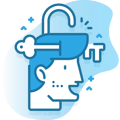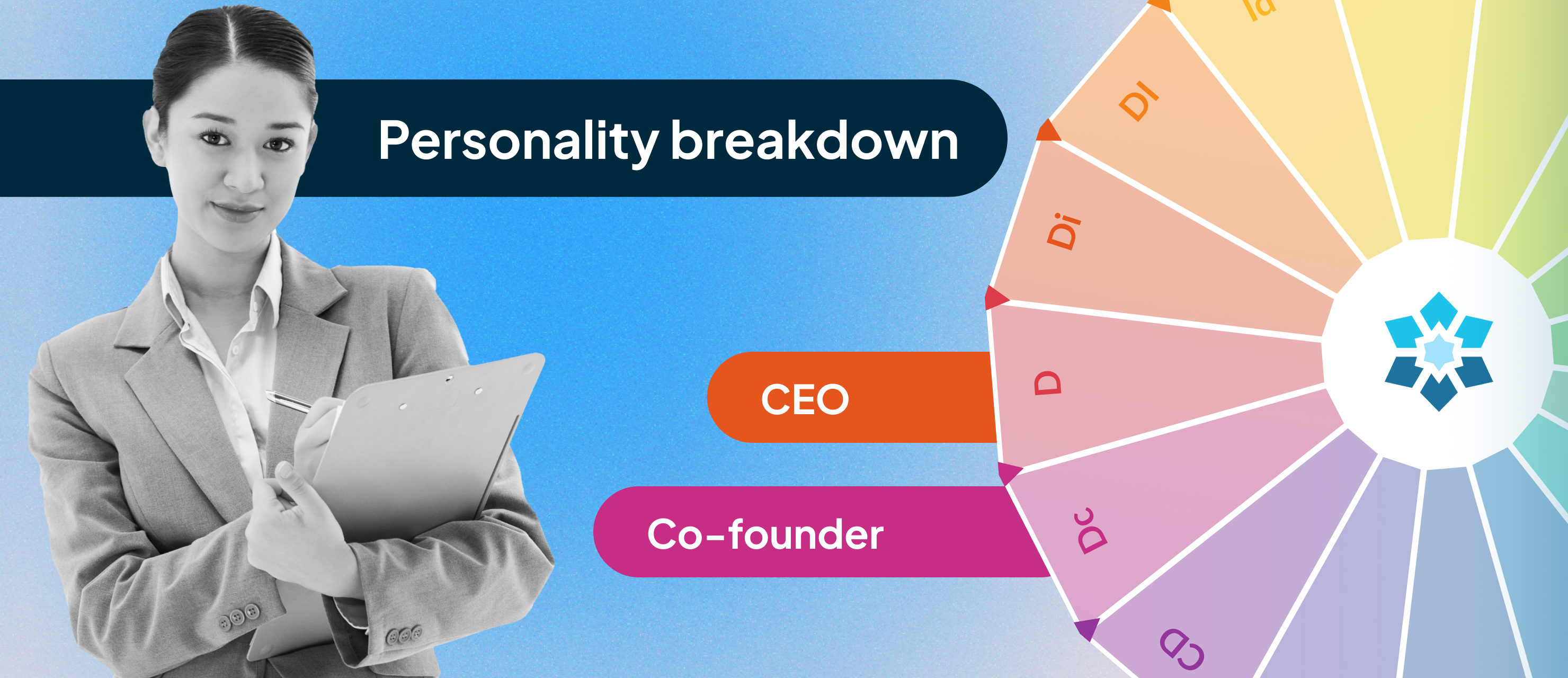
Product pushing is out; solution selling is in.
There’s an undeniable shift towards more personalized and tailored approaches to truly resonate with clients— especially when you can tell something’s written with AI from miles away.
Selling is naturally about addressing specific needs, and with the power of solution selling paired with personality data, you can differentiate yourself in a world where everyone expects you to talk like a robot. 🤖
What is Solution Selling?
Ultimately, the concept is pretty simple:
|
Solution selling is about providing genuine solutions to real-world problems. It’s not about pushing your product or service, but instead, getting deeply involved in understanding the pain points and challenges a customer is truly facing and how you, as the seller, can help provide that solution. |
The heart of solution selling is a customer-centric approach; rather than just showcasing product and pricing, solution selling means a sales rep taking the time to truly listen to the customer, empathize with their situation, and then offer a solution tailored to their specific needs.
It sounds simple, but in reality, reps who use it are pretty few and far between, especially with most of today’s reps leaning heavily in AI and automation so much that a person-to-person connection gets lost in the mix.
Nonetheless, reps who excel at solution selling often achieve great success establishing trust and sealing the deal with their client, knowing how to use both AI and a personalized touch to make their sales process robust and airtight.
One of the beauties of solution selling is its consultative nature; salespeople are now seen as a trusted advisor and not just a seller, and when the products or services this consultant is “selling” are customized to address specific issues, customers feel valued and understood. The relationship is built on a foundation of trust and a genuine desire to help.
The advantages? Well, we don’t have to sell you too much on the advantage of adding an empathetic, human touch to sales, do we? 😉
Without human-to-human interaction, sales are extinct, and unfortunately, amidst lots of shiny new tech tools, it seems many transactional interactions are making personalization a scarcity.
For customers, solution selling offers a more personalized, problem-solving approach, ensuring that a customer gets exactly what they need.
For businesses, it paves the way for deeper, longer-term relationships with customers, fostering trust and ensuring repeat business.
Related: How Elevate Marketing Uses Personality Intelligence to Better Connect with Decision-Makers
How to Leverage Personality Data in Solution Selling
But let's add another factor to the equation, something that reaches the depths of the human experience even deeper— personality data— and see how to leverage both solution selling and personality data to result in great communication.

1. Identify Your Reps’ Buying Triggers Before They Arise.
As you’ve delved deeper into the realm of solution selling, you might start to realize the paramount importance of understanding individual motivations.
After all, every single person operates based on a unique set of triggers, and with personality data in hand, we can actually pinpoint precisely what drives each type.
Consider you’re selling insurance packages. For a prospect who values interpersonal relationships (an I-type or Influence type), as well as social validation and stories, the trigger might be an anecdote about how a family was able to recover their belongings after a huge fire and still make it on time for their son’s graduation the next day.
On the flip side, for a C-type (Conscientiousness) prospect, the buying trigger might be the detailed specifications and coverage nuances of the policy so they can understand the nitty-gritty, like claim processes, exclusions, and coverage percentages.
2. Craft a Truly Tailored Solution.
Pairing solution selling and personality data dismisses what sellers are doing to be faster— a one-size-fits-all approach. 👎
Instead, selling (and more specifically, solution selling) is all about crafting an uber-personal approach for each DISC type (and with a tool like Crystal, it’s easy to do).
Here’s a little micro-guide to understand how each personality type wants to see a solution:
- D (Dominance) types appreciate directness and efficiency, so tailor your solution to emphasize time-saving and competitive advantages.
- I (Influence) types are social and persuasive, so showcase how others have benefited from your offering.
- S (Steadiness) types value stability and trust, so emphasize the reliability and long-term benefits of your product or service.
- C (Conscientiousness) types are detail-oriented folks who love data and specifics, so provide thorough information, comparisons, and in-depth features.
Case study: Allego had been pouring significant time into sales development with limited success-- until adding Crystal to their sales approach. After implementation, they witnessed an 18% surge in responses from prospects and, within the initial three months, saw the rate of scheduled meetings for SDRs rise by 10-12%.
Since Allego began zeroing in on understanding personalities rather than just speeding things up with automation, they connected better with potential clients and, in-turn, saw a boost in their sales.

3. Have Connection-First Communication In Every Interaction.
A conversation isn’t just about waiting for your time to talk; it's about connecting… and in this solution selling and personality data intertwined approach, it’s about adjusting your communication style to match your prospect's personality so you can provide them with that all-encompassing solution.
When you’re on a sales call or meeting, double-check that you’re:
Listening actively, so you’re understanding not just the literals of what a prospect is saying, but what’s going unspoken.
Finding common ground, so you have a memorable shared experience and a deeper personal connection with your prospect.
Giving your prospect time to ask questions, so you’re not overwhelming them with information overload.

4. Handle Objections with Grace.
Every rep faces objections, but the ones who can leverage personality data can fully utilize the magic of solution selling.
What’s the secret?: Understanding the root cause of an objection based on a prospect's personality type. For instance:
A D-type might object due to cost if they don't see immediate value, so emphasizing quick wins and ROI can assuage their concerns.
An I-type might be swayed by seeing how their peers or competitors have benefited, so showcasing testimonials, success stories, or even endorsements can be a game-changer in engaging and persuading them.
An S-type might be hesitant due to concerns about the longevity and reliability of the policy, so winning them over might look like emphasizing testimonials of long-term customers, or highlighting the company’s heritage and stability.
A C-type might have reservations based on specific policy clauses or coverage gaps, so providing them with data-backed justifications or even a detailed side-by-side comparison would be essential to address their concerns.
With all the tools we’re using to make our work faster, resourceful, profound selling, at its core, is about connecting, empathizing, and most importantly, solving genuine problems.
Eager to get started with solution selling backed by the power of personality data? Predict 10 personalities for free today!








